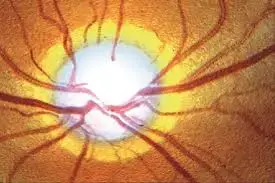- Home
- Medical news & Guidelines
- Anesthesiology
- Cardiology and CTVS
- Critical Care
- Dentistry
- Dermatology
- Diabetes and Endocrinology
- ENT
- Gastroenterology
- Medicine
- Nephrology
- Neurology
- Obstretics-Gynaecology
- Oncology
- Ophthalmology
- Orthopaedics
- Pediatrics-Neonatology
- Psychiatry
- Pulmonology
- Radiology
- Surgery
- Urology
- Laboratory Medicine
- Diet
- Nursing
- Paramedical
- Physiotherapy
- Health news
- Fact Check
- Bone Health Fact Check
- Brain Health Fact Check
- Cancer Related Fact Check
- Child Care Fact Check
- Dental and oral health fact check
- Diabetes and metabolic health fact check
- Diet and Nutrition Fact Check
- Eye and ENT Care Fact Check
- Fitness fact check
- Gut health fact check
- Heart health fact check
- Kidney health fact check
- Medical education fact check
- Men's health fact check
- Respiratory fact check
- Skin and hair care fact check
- Vaccine and Immunization fact check
- Women's health fact check
- AYUSH
- State News
- Andaman and Nicobar Islands
- Andhra Pradesh
- Arunachal Pradesh
- Assam
- Bihar
- Chandigarh
- Chattisgarh
- Dadra and Nagar Haveli
- Daman and Diu
- Delhi
- Goa
- Gujarat
- Haryana
- Himachal Pradesh
- Jammu & Kashmir
- Jharkhand
- Karnataka
- Kerala
- Ladakh
- Lakshadweep
- Madhya Pradesh
- Maharashtra
- Manipur
- Meghalaya
- Mizoram
- Nagaland
- Odisha
- Puducherry
- Punjab
- Rajasthan
- Sikkim
- Tamil Nadu
- Telangana
- Tripura
- Uttar Pradesh
- Uttrakhand
- West Bengal
- Medical Education
- Industry
Dietary nitrate intake useful option for reducing risk of incident open-angle glaucoma

Dietary nitrate intake could be a useful option in reducing the risk of incident open-angle glaucoma (iOAG) according to a recent study published in the Nutrients.
Previous studies suggest that nitric oxide is involved in the regulation of the intraocular pressure (IOP) and in the pathophysiology of open-angle glaucoma (OAG). However, prospective studies investigating the association between dietary nitrate intake, a source of nitric oxide, and incident (i)OAG risk are limited.
Researchers aimed to determine the association between dietary nitrate intake and incident open-angle glaucoma (iOAG) and to evaluate the association between dietary nitrate intake and IOP. From 1991 onwards, participants were followed every five years for incident open-angle glaucoma (iOAG) in the Rotterdam Study.
Results:
- A total of 173 participants developed incident open-angle glaucoma (iOAG) during follow-up. Cases and controls were matched on age and sex (%female: 53.2) in a case: control ratio of 1:5.
- After adjustment for potential confounders, total dietary nitrate intake was associated with a lower incident open-angle glaucoma (iOAG) risk for each
- Both nitrate intake from vegetables and nitrate intake from non-vegetable food sources was associated with a lower incident open-angle glaucoma (iOAG) risk.
- Dietary nitrate intake was not associated with IOP. In conclusion, dietary nitrate intake was associated with a reduced risk of incident open-angle glaucoma (iOAG).
Thus, intraocular pressure-independent mechanisms may underlie the association with open-angle glaucoma.
Reference:
Dietary Nitrate Intake Is Associated with Decreased Incidence of Open-Angle Glaucoma: The Rotterdam Study by Joëlle E. Vergroesen et al. published in the Nutrients.
https://doi.org/10.3390/nu14122490
Keywords:
Dietary, Nitrate, Intake, Associated, Decreased, Incidence, Open, Angle, Glaucoma, Rotterdam, Study, Joëlle E. Vergroesen, Tosca O. E. de Crom, Lauren C. Blekkenhorst, Caroline C. W. Klaver, Trudy Voortman, Wishal D. Ramdas, nutrients, open-angle glaucoma; intraocular pressure; dietary nitrate; green-leafy vegetables
Dr. Shravani Dali has completed her BDS from Pravara institute of medical sciences, loni. Following which she extensively worked in the healthcare sector for 2+ years. She has been actively involved in writing blogs in field of health and wellness. Currently she is pursuing her Masters of public health-health administration from Tata institute of social sciences. She can be contacted at editorial@medicaldialogues.in.
Dr Kamal Kant Kohli-MBBS, DTCD- a chest specialist with more than 30 years of practice and a flair for writing clinical articles, Dr Kamal Kant Kohli joined Medical Dialogues as a Chief Editor of Medical News. Besides writing articles, as an editor, he proofreads and verifies all the medical content published on Medical Dialogues including those coming from journals, studies,medical conferences,guidelines etc. Email: drkohli@medicaldialogues.in. Contact no. 011-43720751


